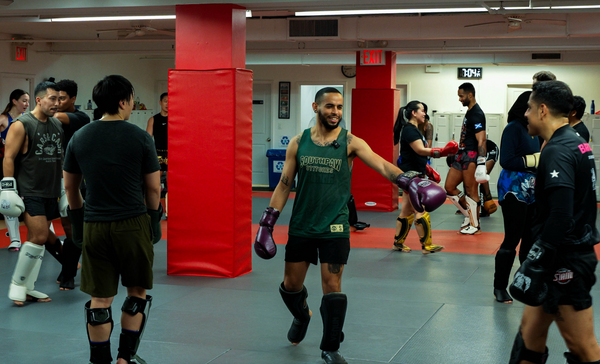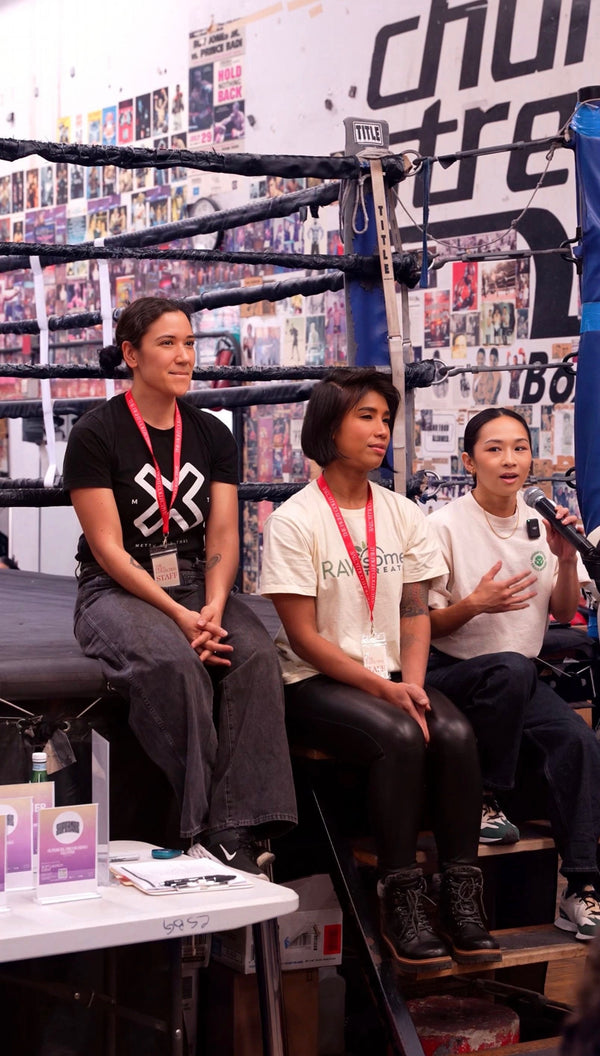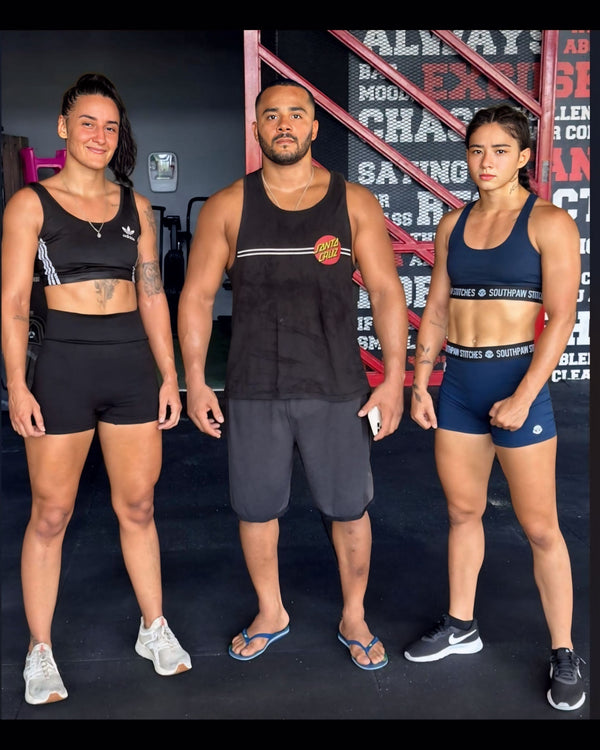Built Different: Joel Estevez on Coaching, Standards, and the Future of Muay Thai

Joel Estevez has been a pillar in the Muay Thai scene for over a decade—and recently, he launched Premier Muay Thai, a new gym that reflects years of dedication, consistency, and expertise. Known for his sharp eye and no-nonsense style, Joel brings a level of intention to the room that’s hard to miss. He’s not here to chase trends—he’s here to teach the fundamentals right, to build real fighters, and to create space where people can show up fully as themselves.
“As close to perfect as we can, barring any limitations.”
That’s the standard he teaches by—simple, direct, and personal. Joel keeps his classes clear and focused, making precise adjustments for each student.
What he hopes students take with them goes beyond technique. For Joel, it’s about a deep respect for the basics, a strong foundation, and the kind of environment where people feel like they belong.
“Being yourself builds a strong community,” he says. “I believe people will gravitate to where they fit in—and the best way to fit in is to be yourself.”
His roots in the sport run deep, but his approach is far from rigid. Joel knows Muay Thai is evolving—and he’s evolving with it.
“If you don’t keep up with the times, you’re gonna get left behind.”
He’s also thinking beyond the gym walls. With only a handful of major tournaments in the U.S., he sees a need for more consistent opportunities to compete.
“We need a local tournament to keep fighters busy and to gain that experience.”
Premier Muay Thai isn’t just a new gym—it’s a continuation of everything Joel has built, refined, and stood for over the years. The fundamentals, the community, and the vision for something greater—it’s all there.
In Conversation with Joel Estevez
We sat down with Joel to talk about his roots, his coaching style, and what’s next for the sport. Here’s the full Q&A:
What drew you into the sport of Muay Thai?
I had known about Muay Thai for a little while before I started because I used to watch UFC in its early days. My brother started before me and what made me actually pursue it was being at a ‘Take-On’ show and being amazed at what I saw. I think Jess actually fought that night if I remember correctly. This was in 2010.
What do you feel is missing or needed in the Muay Thai education space today, and how are you hoping to contribute to that?
I think we have what we need in terms of education. What we do need more of though is tournaments. I wish we had a monthly tournament that people could just accumulate rounds and rounds of experience. We have 4 major tournaments in the US and nobody goes to all 4. We need a local tournament to keep fighters busy and to gain that experience.
What do you think helps create a strong, supportive gym community?
I think being yourself builds a strong community. Not every person is meant to be in every gym—not to say that everyone isn’t welcome, but some people just don’t mesh well. I believe that people will gravitate to where they fit in, and the best way to fit in is to be yourself.
What’s something you’ve carried with you from your past coaching experiences that influences how you lead now?
I think keeping high standards is something that I learned very early on that still sticks with me. When I teach class I always keep it simple and walk around to each person and try to make the proper adjustments to make it as close to perfect as we can, barring any limitations.
What do you hope your students take away from training with you?
I hope that everyone takes away the love for the basics and a solid foundation.
What’s something you’re still learning in your journey as a coach or athlete?
I know everything [laughs] JK. I’m learning that the game is always evolving. For example, when I first started training, there used to be what’s called ‘traditional’ Muay Thai. You don’t even hear ‘traditional Muay Thai’ anymore—it’s become a different game from what it used to be back then. If you don’t keep up with the times, you’re gonna get left behind.




